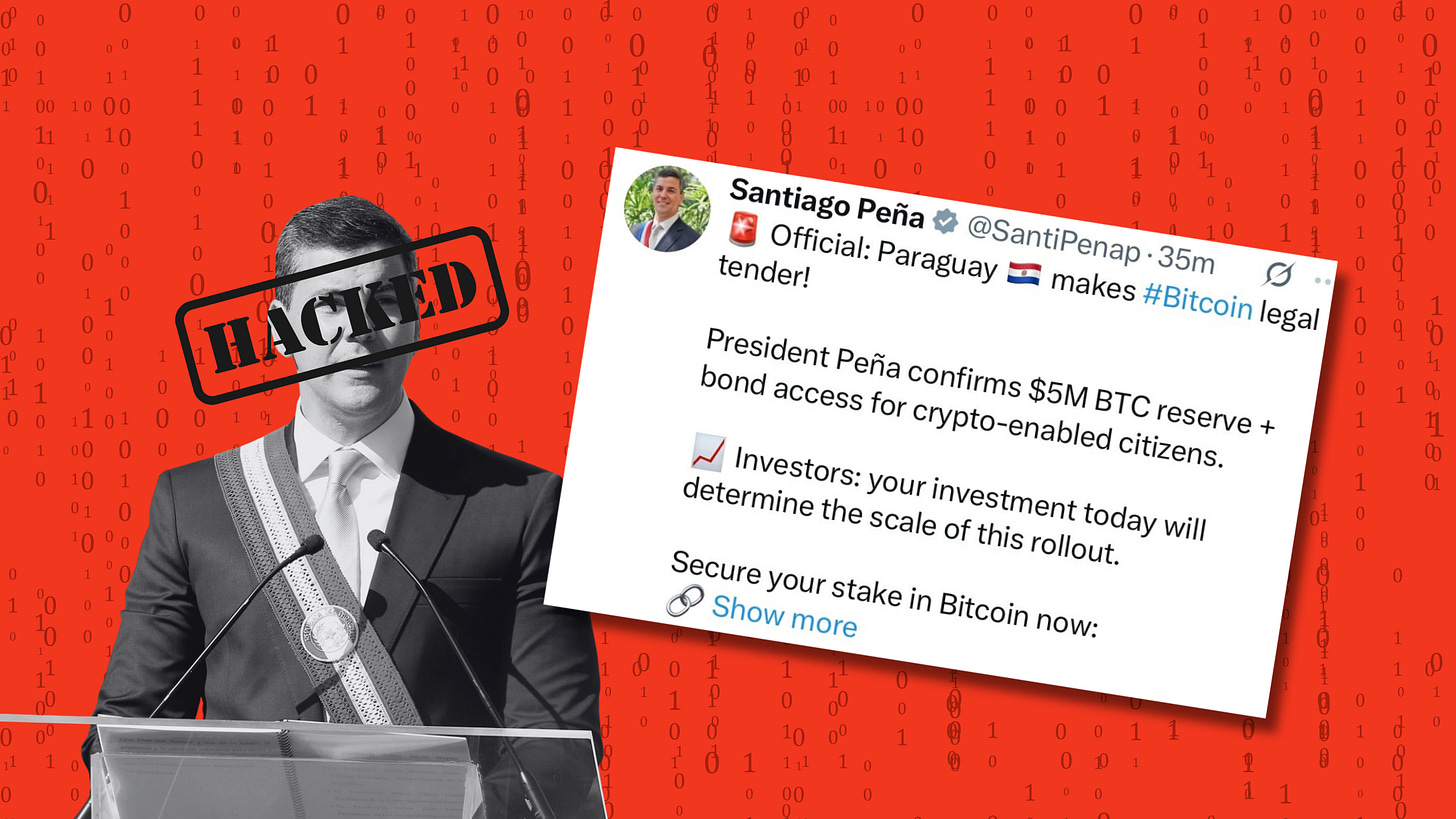Paraguay Comes Under Cyberattack
Get the facts about the hacks.
Making waves: The Paraguay Post has been selected as a finalist for Paraguay’s National Environmental Journalism Prize for our report on the fight to save the Mbaracuayú Forest reserve. Wish us luck at the award ceremony on July 24!
In recent weeks, Paraguay has been hit by a wave of cyberattacks targeting government institutions. More than thirty official websites have been breached, including those of the Chamber of Deputies, the Senate, and the president’s office.
The situation drew international attention on June 13, when hackers began to post sensitive information belonging to 7.4 million Paraguayans on a popular file-sharing platform.
Shortly after the leak, people across the country began reporting suspicious messages and calls containing malicious links. The objective seemed to be to steal information that could give access to bank accounts, credit cards, and digital wallets.
And on June 9, even President Santiago Peña’s account on social media platform X fell victim to international hackers.
The president appeared to announce the legalization of Bitcoin in Paraguay — a claim denied by another official presidential account. It took several hours for the country’s head of state to regain control of his profile.
The embarrassing episode happened just days before the planned launch of a National Cybersecurity Strategy, which had to be postponed.
The latest attacks have stoked concerns that Paraguay’s hawkish foreign policy and cavalier attitude towards cybersecurity are exposing its citizens to digital banditry — and even putting them on the frontlines of the global cyberwar.
Keep reading with a 7-day free trial
Subscribe to The Paraguay Post to keep reading this post and get 7 days of free access to the full post archives.





